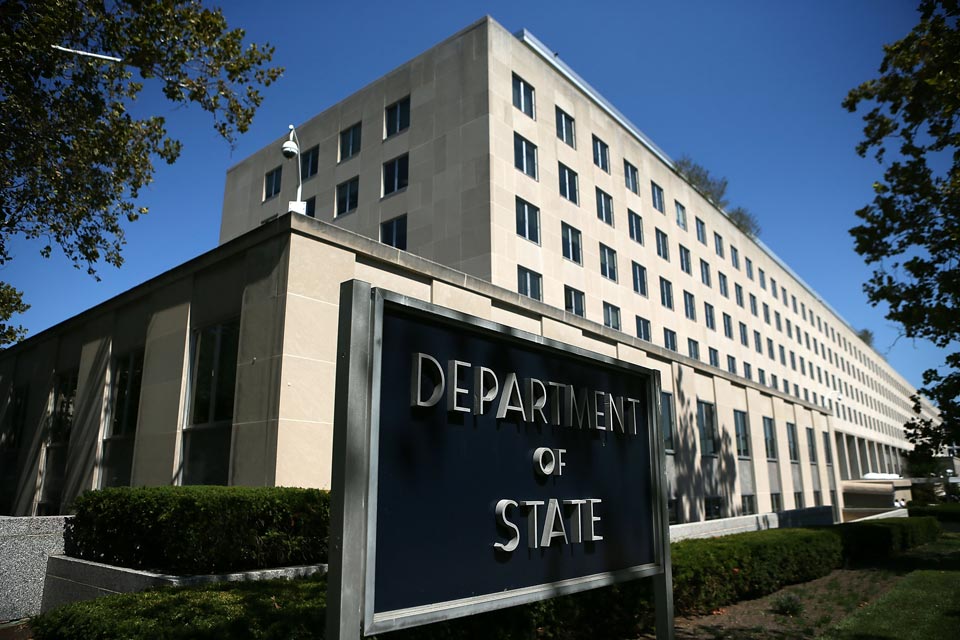
Georgia continued its robust engagement on counterterrorism issues in 2021 and remained a strong U.S. security partner, remarks 2021 report on terrorism by US Department of State.
US Department notes that the terrorism situation in Georgia remained quiet and stable.
“Georgia took further action to secure its border and arrested five Georgian citizens on ISIS-related terrorism charges in 2021. Updated counterterrorism financing legislation came into force in Georgia, and the country worked to update its National Counterterrorism Strategy and Action Plan. Far-right groups carried out violence against journalists and activists during a Tbilisi Pride event July 5. The groups also destroyed an opposition protest site at Parliament, attempted to storm Parliament, and attacked NGO offices. LGBTQI+ activists described feeling hunted, as the locations where they sought refuge were discovered by far-right groups. These events occurred after the prime minister called the planned Tbilisi Pride event “inappropriate.” Throughout the day, the Ministry of Internal Affairs failed to deploy riot control measures. Despite the arrest and later conviction of 28 perpetrators, no group leaders or organizers of the violence have been held legally responsible,” the document reads.
It notes that in 2021, Georgia developed its National Counterterrorism Strategy and Action Plan for 2022-26, as its previous counterterrorism strategy concluded.
“The new strategy and action plan included interagency input and was approved in December by Georgia’s Interagency Standing Committee on Counterterrorism. Though the government included some NGOs in discussion of the strategy, a prominent civil society organization criticized the document for not adequately addressing key threats and challenges, including major causes of radicalization in Georgia, and for not assessing the role of the state in the radicalization process. The government also approved a national strategy (2021-30) and action plan (2021-23) for Chemical, Biological, Radiological, and Nuclear (CBRN) threat reduction,” the report reads.
According to the document, the State Security Service of Georgia is generally well equipped and well trained, and the SSSG’s Counterterrorism Unit continues to receive regular training and equipment, including from international partners.
“Civil society, journalists, and the international community raised concerns in 2021 regarding the State Security Service’s secret surveillance system and its lack of political neutrality and weak oversight,” It notes.
According to report, Georgia worked to enhance its land border and maritime security in 2021.
“The Border Police completed projects along Georgia’s land border to increase patrolling, surveillance, and deterrence capabilities. Georgia finalized construction of one Land Border Segment along the border with Türkiye, and one along the border with Azerbaijan. The Border Police enhanced detection capabilities with two additional mobile surveillance systems and increased the number of operational personnel along Georgia’s borders. Georgia created the Border Management and Coordination Division within the Ministry of Internal Affairs to improve intra-agency and interagency cooperation and risk management.
To improve its national command and control, Georgia began laying fiber optic cable to connect its border security sector headquarters with regional and national control centers. Georgia also added a maintenance facility to service its video surveillance camera infrastructure. Further, Georgia equipped CBRN units in the Ministry of Defense, the Ministry of Internal Affairs, and SSSG with CBRN detection and decontamination equipment to respond to the risks and threats of WMD materials proliferation and their use. The United States provided Georgia’s Coast Guard with new radar, communication, and surveillance systems to enhance Georgia’s maritime domain awareness control capabilities. Resource constraints, including lack of funding for border scanning equipment, resulted in Georgia’s reliance on donations of luggage and body scanners from China, as well as from the United States and Europe.
In July, Georgia adopted a government decree approving the Rule on Transferring, Processing, Deleting, Obtaining, and Destroying API/PNR Record Data by Air Carriers. SSSG cooperated with air carriers, relevant agencies, and international partners to begin operation of API and PNR systems. Georgia participates in the United Nations Office on Drugs and Crime and the World Customs Organization jointly run Container Control Program, and it has three task forces deployed to identify illegal cargo,” the document reads.
The report notes that Georgian border patrol agents check individuals, vehicles, and travel documents against databases, including INTERPOL.
“No Georgian citizens were identified as traveling to Syria or Iraq in 2021 for terrorist activities. Georgia did not repatriate any FTFs or family members from Syria or Iraq.
In August, Georgia arrested five Georgian citizens in the Pankisi Gorge region on charges related to membership in ISIS and plans to travel to a terrorist camp in Syria. SSSG reported that one of the individuals had publicly stated he was ISIS’s “Emir of Georgia.” it reads.
The report notes that far-right groups committed violence against dozens of journalists and activists during the July 5 Tbilisi Pride event.
“Far-right, pro-Russia group Alt-Info and far-right networks associated with violent extremism including the Children’s Rights Defenders Society and Georgian March organized and carried out violence against dozens of journalists and activists during the July 5 Tbilisi Pride event and a July 6 protest against the July 5 violence. No group leaders or organizers of the violence were held legally responsible. Alt-Info leaders subsequently registered a political party, the Conservative Movement, and opened offices across Georgia. Alt-Info/Conservative Movement leadership has called for and voiced support for violence to achieve their goals,” the document underscores.





